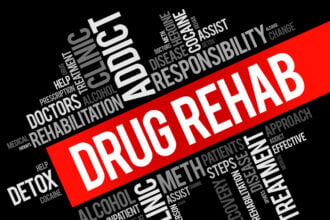If you ask people what they think is the most dangerous job, most will suggest manual labor like construction, mining, or logging (which has the highest fatality rate of all professions); what most overlook is that high fatalities are clustered in jobs that very few people actually hold. When it comes to day-to-day injuries, though, four of the eight most hazardous professions are tied to the medical industry: orderlies, nursing assistants, personal care aides, and registered nurses. In other words, taking care of other people can be hazardous to your health, and that can be a real problem from a hospital staffing perspective.
In order for hospitals to protect nursing staff while enabling them to do their jobs, administrators need to take an evidence-based approach that emphasizes safety and proper technique over habit. Though it may take some re-training to get all of your staff on the same page, as well as possibly an increase in staffing levels or space and equipment modifications, it’s worth it for increased staff safety.
Pricks And Pokes
One of the most common injuries in the medical profession is one of the simplest: needle sticks. In fact, according to the CDC, there are about 385,000 sharps-related injuries each year. Many of these are harmless, but often needle sticks expose staff to diseases such as diphtheria, HIV, hepatitis, and tuberculosis. And though hospitals have needle-handling standards to avoid such accidents, busy nurses, especially on understaffed units, may develop workarounds and bad habits that leave them exposed.
If staff seems to ignore needle safety protocols, one way to improve adherence is simply by making it easier to follow proper practices. For example, all used needles should immediately be put in hazmat or sharps containers. In a standard lab, this is easy – the containers are right there. When nurses are going to individual rooms, though, the disposal container might not be nearby, leading to careless needle handling. Placing more hazmat containers in patient rooms or developing simpler mobile blood draw kits can encourage staff to be more attentive to proper needle disposal.
Patient Handling Problems
According to OSHA, nearly 50% of hospital staff injuries are caused by physical overexertion, such as bending and lifting – generally for purposes of patient handling. The problem is that patient handling is a primary occupational task for nurses and other facility assistants, making it difficult for hospitals to reduce exposure to this task. Instead, hospitals need to provide more assistance, whether through enhanced staffing or through mechanical supports.
Many hospital administrators object to changing patient handling standards; what’s wrong, you may ask, about the way things have always been done? Well, the way things have always been done is injuring staff and putting your facility at financial and legal risk. If workers are injured because you don’t provide necessary equipment or sufficient staff, you may be subject to workers’ compensation lawsuits following patient handling injuries. It’s less expensive and better for your reputation to put appropriate supports in place.
It’s especially important to invest in more staffing, better patient handling training, and technology such as patient slings and lifts because hospital populations are changing. Americans are heavier than ever before, and in some ways, every hospital has become a bariatric center. Hospitals that have introduced hoists and other mechanical lifting systems have seen as much as an 80% decrease in lifting injuries among nurses, but very few hospitals have made this transition.
For hospitals that can’t afford to invest in new equipment or are in old buildings that can’t support lifts and hoists, the simplest way to reduce patient handling injuries is by investing more in staff training. Such training is relatively inexpensive and has a long-lasting effect on staff. That patient handling is typically part of nursing education, classroom lessons on lifting and moving patients don’t accurately reproduce what it’s like to do these tasks on a packed unit.
Over time and under pressure, staffers tend to shed good ergonomic habits and that’s when they get injured. When you provide additional training, on the other hand, not only does it reinforce earlier lessons but as staff master the skills and reap the benefits, they’ll pass on proper handling practices to new employees.
When hospital staff suffer repeat work-related injuries, they tend to reduce their hours, switch to less physically intense work, or even withdraw from the field entirely – and they take valuable knowledge and experience with them. By prioritizing safety, however, you’re also demonstrating how much you value your staff. You can’t provide top quality patient care if your best staff aren’t well enough to give their all.










